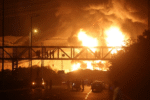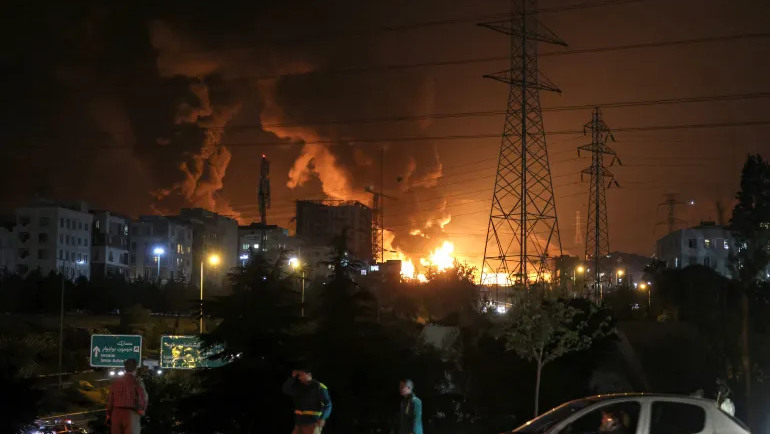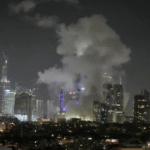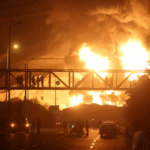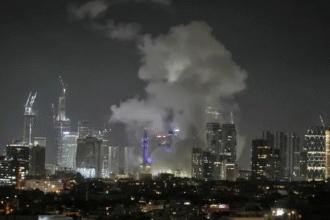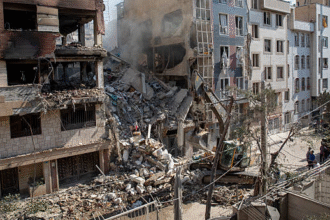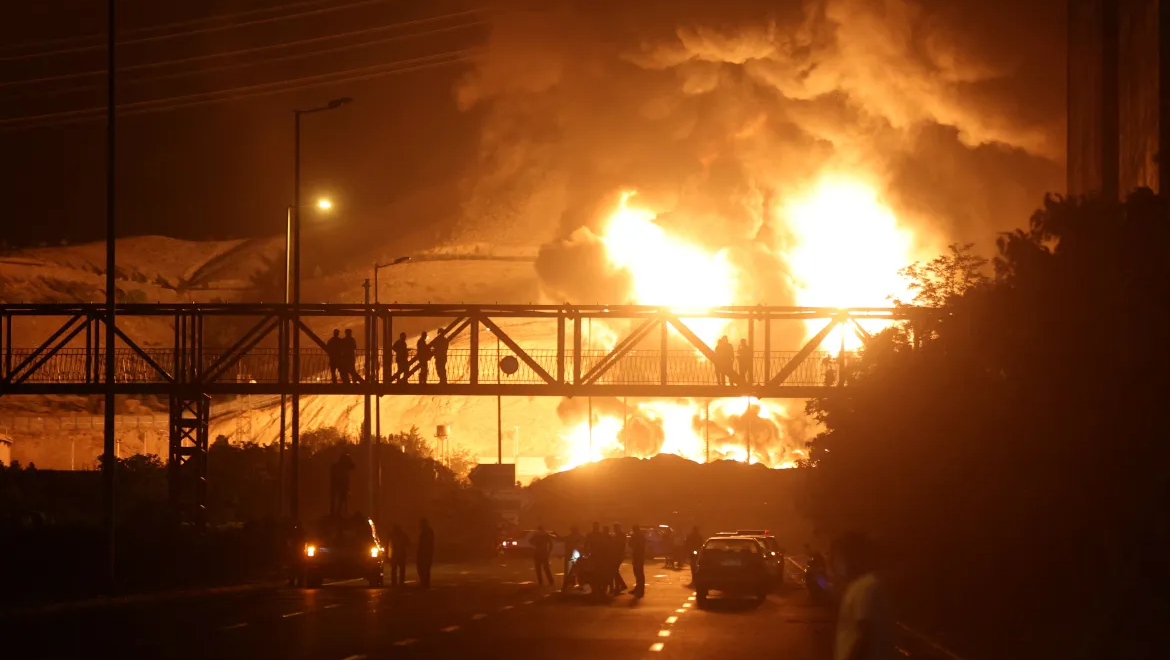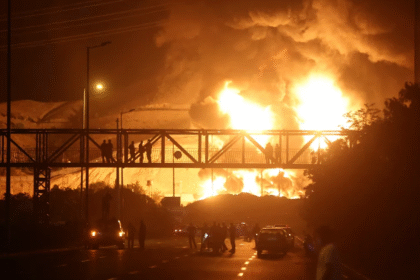The deadly standoff between Iran and Israel has taken a grim turn as both nations intensified attacks on each other, raising fears of a prolonged war. As of June 14, 2025, this marks the third straight day of fierce military exchanges.
Overnight, Iran launched another wave of missile and drone attacks on northern Israel. Israeli reports confirmed at least three people dead and 13 injured. The coastal cities of Haifa and Tamra were struck, with strategic gas infrastructure appearing to be the main target.
Meanwhile, Israel responded with a major air assault, striking deep into the Iranian capital. According to Iran’s semi-official Tasnim news agency, one of the primary targets was the Iranian Ministry of Defence building in Tehran. Other critical infrastructure, such as the Shahran oil depot northwest of the city, also came under attack. Flames lit up the night sky, and emergency responders battled fires into the early hours.
Videos shared across social media, later verified by Al Jazeera’s Sanad unit, showed missile trails lighting up the skies over northern Israel. Sirens blared across Haifa and Western Galilee.
Al Jazeera’s Tohid Asadi, reporting from Tehran, said: “We saw the fire at the oil depot. Air defence systems lit up the skies, and explosions echoed throughout the capital.”

Israel Changes Strategy: Economic Targets Hit
In a shift from targeting only military and nuclear sites, Israel has now begun hitting economic and civilian infrastructure. Saturday’s strike on Iran’s South Pars gas field — one of the country’s most vital energy sources — illustrates this new strategy.
Energy expert Manouchehr Takin explained: “South Pars is the backbone of Iran’s domestic energy supply. Disrupting it will worsen Iran’s economic troubles, already crippled by sanctions.”
Al Jazeera’s Nour Odeh added: “This is a serious escalation. Israel is trying to paralyse Iran economically by going after assets like gas and oil refineries.”

Heavy Civilian Toll in Tehran
Iran reported that 80 people were killed and over 320 injured in Israeli strikes across Tehran. The victims included women, children, and reportedly nine nuclear scientists. In retaliation, Iran launched more missiles that managed to bypass parts of Israel’s missile defence systems, killing four and injuring over 200 people since the conflict reignited.
Iranian media also claimed that one of Israel’s most advanced jets, an F-35, was shot down — although this claim remains unverified and has been denied by Israeli officials.

Diplomacy Crumbles Amid Violence
Amidst the chaos, peace talks between the US and Iran — which were scheduled to take place in Oman — have been called off. Iran’s Foreign Minister Abbas Araghchi said: “We will not negotiate under fire. As long as these barbarous attacks continue, diplomacy is dead.”
US President Donald Trump, who had tied negotiations to Iran’s willingness to scale back its nuclear programme, condemned Iran’s actions and voiced support for Israel. In contrast, Russian President Vladimir Putin urged restraint in a 50-minute call with Trump.

Israeli Officials: Retaliation Will Continue
The Israeli military says it has hit more than 150 targets in Iran and promises more if the missile attacks persist. Defence Minister Israel Katz gave a chilling warning: “If Khamenei continues to fire missiles at the Israeli home front, Tehran will burn.”

World Reacts With Alarm
Global leaders are urging restraint, fearing the violence could expand beyond Iran and Israel. Iran has hinted it may shut down the Strait of Hormuz — a critical route for global oil shipments — if the conflict intensifies. They also warned foreign bases aiding Israel could face retaliation.
However, Iran’s regional support is limited. After conflicts in Gaza and Lebanon over the past two years, its key allies — Hamas and Hezbollah — are significantly weakened.
Turkish President Recep Tayyip Erdogan spoke with Saudi Crown Prince Mohammed bin Salman and Iranian President Masoud Pezeshkian, blaming Israel for the crisis. “Netanyahu is setting the region on fire and sabotaging all peace efforts,” Erdogan reportedly said.
He added that the attacks on Iran may be a distraction from the ongoing humanitarian crisis in Gaza, calling it “genocide.”

Conclusion
The Iran-Israel conflict has now escalated from targeted military operations to a dangerous game involving civilian and economic targets. Both sides are trading deadly blows, while the international community scrambles to prevent a regional catastrophe. With diplomacy on pause and war rhetoric intensifying, the coming days could prove decisive for the future of the Middle East.
What do you think? Do you believe either side can truly win in a conflict like this, or is diplomacy the only real solution? Should global powers intervene more aggressively to de-escalate the war? Share your thoughts — we’d love to hear your perspective.





